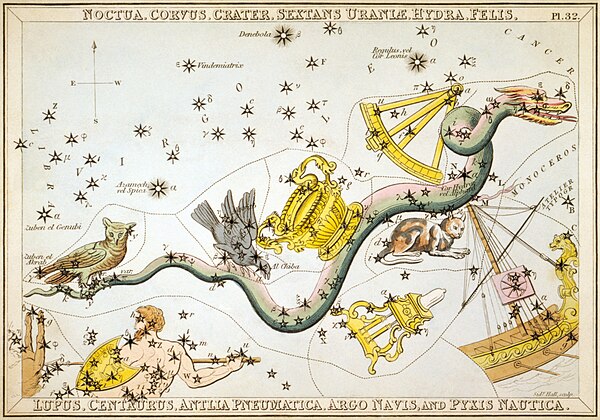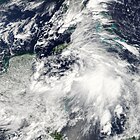From today's featured articleTropical Storm Nicole was a short-lived and unusually asymmetric tropical cyclone that caused extensive flooding in Jamaica during the 2010 Atlantic hurricane season. It was the last of a record eight tropical storms to form in September. Originating from a broad monsoonal low, Nicole became a tropical depression over the northwestern Caribbean Sea on September 28. As it tracked northeastward, its wind circulation was poorly defined, and most of its strongest thundershowers were well removed from the center. In Jamaica, the storm triggered widespread power outages affecting more than 288,000 residences. Precipitation of up to 37.42 inches (950 mm) caused disastrous flooding in several parishes, severely damaging or destroying 528 houses. The island's farmland suffered from extensive water pollution. Nicole wrought an estimated US$245.4 million in damage throughout Jamaica, and there were sixteen fatalities. (Full article...)
Recently featured:
Did you know...
|
In the news
On this day
Richard Graves (b. 1715) · Audrey Hepburn (b. 1929) · Lillian Estelle Fisher (d. 1988) |
Today's featured picture

|
|
Hydra is a constellation in the southern celestial hemisphere, commonly represented as a water snake. The largest of the 88 modern constellations, it stretches more than 100 degrees across the sky. Its southern end abuts Libra and Centaurus, while its northern end borders Cancer. It was included among the 48 constellations listed by the 2nd-century astronomer Ptolemy. Despite its size, Hydra contains only one moderately bright star, Alphard, designated Alpha Hydrae, which is an orange giant of magnitude 2.0, 177 light-years from Earth. Other stars include Beta Hydrae, a blue-white star of magnitude 4.3, as well as Gamma Hydrae, a yellow giant of magnitude 3.0. Hydra contains three Messier objects: M83, also known as the Southern Pinwheel Galaxy, located on the border with Centaurus; M68, a globular cluster near M83; and M48, an open cluster at the western end of the constellation. This illustration was produced around 1823 and comes from Urania's Mirror, a set of 32 astronomical star chart cards. Along with Hydra, the chart also depicts the constellations of Noctua (obsolete), Corvus, Crater, Sextans Uraniae (now Sextans), Felis (obsolete), Lupus, Centaurus, Antlia Pneumatica (now Antlia), Argo Navis (obsolete) and Pyxis Nautica (now Pyxis). Lithograph credit: Sidney Hall; restored by Adam Cuerden
Recently featured:
|
Other areas of Wikipedia
- Community portal – Bulletin board, projects, resources and activities covering a wide range of Wikipedia areas.
- Help desk – Ask questions about using Wikipedia.
- Local embassy – For Wikipedia-related communication in languages other than English.
- Reference desk – Serving as virtual librarians, Wikipedia volunteers tackle your questions on a wide range of subjects.
- Site news – Announcements, updates, articles and press releases on Wikipedia and the Wikimedia Foundation.
- Village pump – For discussions about Wikipedia itself, including areas for technical issues and policies.
Wikipedia's sister projects
Wikipedia is hosted by the Wikimedia Foundation, a non-profit organization that also hosts a range of other projects:
Free media repository
Wiki software development
Wikimedia project coordination
Free textbooks and manuals
Free knowledge base
Free-content news
Collection of quotations
Free-content library
Directory of species
Free learning materials and activities
Free travel guide
Dictionary and thesaurus



